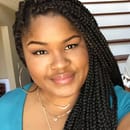Sometimes it is nice to trade in your tea for some fresh lemonade.
Inspired by Beyoncé’s sixth studio album “Lemonade ,” the Museum of Design Atlanta has now found a way to implicate pop culture with social justice issues that many consider taboo.
To understand MODA’s Lemonade Project more vividly, let’s break it down as told by a few song titles from the album.
Formation
If you are a minority, chances are that you know how difficult it can be to navigate the world where you are otherwise already labeled. That was the amazing thing to see at this discussion. The project, which is the moderated, curated and crafted brainchild of Blair Banks and Aretina Hamilton automatically opened the floor for what we knew would be an amazing conversation solely because of their extensive backgrounds concerning feminism, race and gender.
There were black women, Jewish women, LGBTQ communities, Hispanic women, white women, black men, collegiates, grandparents, and any other minority or demographic that you can think of.
The importance in this is that there was representation without the feeling of having to be silenced. As a minority, there are times when we feel as though we have to alter or silence ourselves because we do not want to do anything “outside of the box.” This series however, is changing that as it is considered a safe space.
The Lemonade Project is a free, modern way to get the Atlanta community to talk openly about social issues that otherwise may be swept under the rug. There is something so exciting about having a room full of individuals who range from millennials to baby boomers, collectively discussing issues that affect one another directly or indirectly. Being centered around social justice itself, the album Lemonade has made it increasingly popular to use music as symbolism to those who may not have a voice.
Freedom
One could almost guess that the hottest topic was concerning our new president and all of the implications we could potentially face if we sit silently. This discussion is very important in a time like this because it is clear that you have to use your voice despite what side you are on.
In a sense this curated event is charging one to have some type of social responsibility when it comes down to the livelihood of those affected by the political transition. One person commented, saying, “sitting silently in the face of social issues will furthermore have history repeat itself.”
Events such as these are becoming more popular overnight due to potential social reforms, civic and human rights issues, and the overwhelming support of minority and diverse communities globally.
This lemonade was getting sweeter.
There was something so enlightening about people being able to use their platforms to bring peace to the peaceless and hope to the hopeless. Though this was a discussion on very broad topics, social representation was more than present in the room.
Despite the nature of the discussion, this lemonade talk was more about figuring out what you, as an individual in 2017, can do to give your life vibrance. As this was discussion number four, this particular theme was based off of Shonda Rhimes’ “The Year of Yes.” Taking notes from the best selling author and writer of shows such as “Scandal” and “Grey’s Anatomy” gave many people in the room the capacity to unpack and dissect their own identities and lifestyles. To see a room full of people become comfortable for a few hours in their own truths is what makes this project authentic in its own light.
Sorry
Lemonade is literally for everyone. For the feminist, the boss lady, the one who does not say much but is a force to be reckoned with and for anyone who simply feels as though they do not belong. This discussion has shown me so many things that I did not even know about myself. Many can view social justice issues as something that is weary to talk about, but MODA has found a way to change that. When you begin to decipher yourself and find out what it means to advocate for what you believe in, that is when you dismantle the idea of these discussions being taboo. It is almost criminal to know that people feel like they should not exist in their own identities when these same people are the ones who will change the world.
Forward
Being able to sit in a room and listen silently to the mother who is concerned for her black son or the sister who is concerned for her little sister has restored my hope in humanity. This world is not always a bad place, despite how you decide to view it. There are other areas that go beyond what you may see as your reality and these other areas are the ones who ultimately need the most love.
It is highly encouraged that you try to make this series at least once before it ends. Giving an upfront view on social problems is what many of us need to either hear or express, plus they literally have lemonade for you to drink!
If you are interested to immerse yourself in one of these talks visit MODA’s website for more details, you will not be disappointed.
And always remember, when life gives you lemons…



